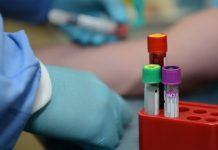With Covid 19 rapidly evolving and spreading, people are taking extreme precautions to prevent infection. The Michigan newspaper, Oakland Press, reports that some medical experts feel there’s a lot of unnecessary panic and overreaction.
What these professionals continue to reiterate is that face masks cannot adequately protect the public against the virus. However, it does help healthcare practitioners in the field that make direct contact with infected patients. Dr. Jerome M. Adams, US public health head, echoed this same practical advice in his viral tweet on February 29. He emphasized that a shortage of face masks could prevent specialized medical teams from carrying out their functions efficiently. Given the health safety risks Covid 19 poses, medical teams need the proper gear to limit exposure as much as possible.
Experts also understand the anxieties that push people to overreact, especially when the situation calls for multilevel risks mitigation parameters. With emotions running high and psychological instincts shaping perceptions, individuals are reluctant to trust evidence-based reporting. What experts realize is that the idea of the virus being foreign and unpredictable creates a sense of hopelessness, which increases worry.
Historically, seasonal flu is a deadlier threat, but access to treatment such as vaccines makes it less feared than Covid 19. With no vaccine yet, and conventional medicine proving ineffective against Covid 19; doctors are chiefly relying on a systemic immune response to overcome the virus. Scientists, doctors, and researchers are continually studying this poorly understood virus to provide real solutions. Meanwhile, words of caution and assurance are merely inconsequential to a hysterical population needing resolute intervention.
New York’s Center for Risk Communication director Vincent Covello is breaking down the psychological factors shaping how individuals protect themselves. He says individuals have a lack of trust in the powers over them, so they often predict far worse outcomes than what’s reported by the authorities. Also, involuntary exposure, direct transmission, and delayed presentation of risks are some of the primary influences stimulating fear.
David Ropiek, former Harvard professor and a specialist in risk communication, insists that public health officials motivated the chaos. He emphasizes that sharing news about a potential health threat, especially a possibly life-threatening one is a sensitive matter. For this reason, experts divulging information about said threat must do so cautiously and reference reassuring cases to minimize overaction. Sadly, this was not the fashion in which the authorities addressed the world about Covid 19, so, of course, it caused mass hysteria.






